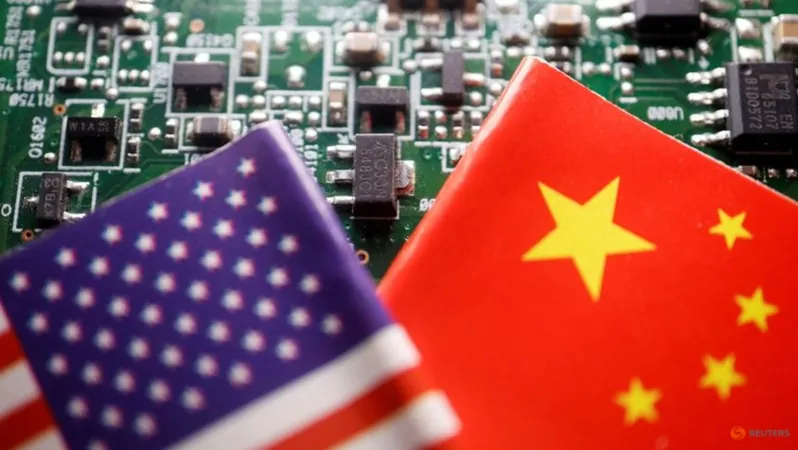
US Targets Multiple Entities in Bold Move to Counter China's Tech Advancements
2025-03-25
Author: Arjun
US Targets Multiple Entities in Bold Move to Counter China's Tech Advancements
In a significant escalation of trade policy, the United States has blacklisted an alarming number of entities as part of an ongoing effort to restrict China's growing capabilities in artificial intelligence and advanced computing. On March 25, the Commerce Department officially announced the addition of 80 entities from several countries including China, Iran, and the United Arab Emirates, citing their “activities contrary to US national security and foreign policy.”
These newly designated entities are now included in the "entity list," which imposes strict regulations limiting their access to American technology and products without prior government authorization. This measure is part of a wider strategy to prevent adversaries from leveraging American innovations to enhance their military capabilities.
US Commerce Secretary Howard Lutnick emphasized the seriousness of the situation, stating, “We will not allow adversaries to exploit American technology to bolster their own militaries and threaten American lives.” This remark underscores the US commitment to maintaining its technological edge and national security.
Among the organizations blacklisted are 11 based in China and one in Taiwan, specifically implicated in the development of advanced artificial intelligence, supercomputing technologies, and high-performance AI chips that potentially serve the military-industrial complex of China. Notable targets include the Beijing Academy of Artificial Intelligence and subsidiaries of Inspur Group, both of which have been linked to controversial military projects.
Moreover, this decision also reflects concerns regarding contributions to unsafe nuclear activities and ballistic missile programs, with officials aiming to prevent US technologies from being misused in areas such as hypersonic missiles, advanced military aircraft training, and other defense initiatives.
The implications of this crackdown are far-reaching, not only affecting tech companies and advanced research institutes but also sending a clear message to international players within these industries. Additionally, entities in both Iran and China have been included on the list for their attempts to acquire US technologies for Iran's defense and drone programs, further illustrating the global chess game over tech supremacy and military advantage.
As tensions rise and the technological race heats up, this maneuver by the US highlights a growing concern over the security landscape and the importance of controlling advanced technologies in the face of geopolitical challenges. Can the US maintain its lead in the tech battlefield, or will China surge ahead? Only time will tell.




 Brasil (PT)
Brasil (PT)
 Canada (EN)
Canada (EN)
 Chile (ES)
Chile (ES)
 Česko (CS)
Česko (CS)
 대한민국 (KO)
대한민국 (KO)
 España (ES)
España (ES)
 France (FR)
France (FR)
 Hong Kong (EN)
Hong Kong (EN)
 Italia (IT)
Italia (IT)
 日本 (JA)
日本 (JA)
 Magyarország (HU)
Magyarország (HU)
 Norge (NO)
Norge (NO)
 Polska (PL)
Polska (PL)
 Schweiz (DE)
Schweiz (DE)
 Singapore (EN)
Singapore (EN)
 Sverige (SV)
Sverige (SV)
 Suomi (FI)
Suomi (FI)
 Türkiye (TR)
Türkiye (TR)
 الإمارات العربية المتحدة (AR)
الإمارات العربية المتحدة (AR)